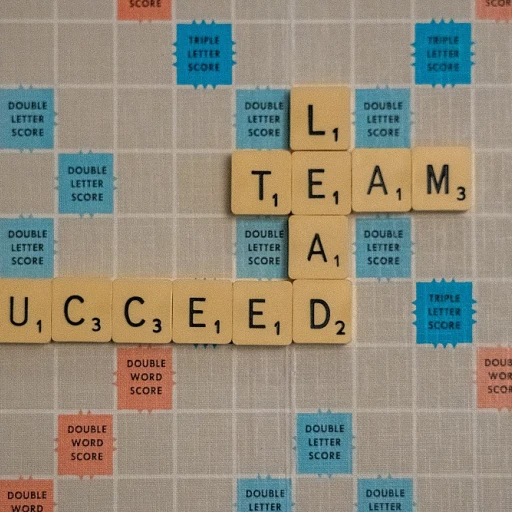
Understanding Prehire Assessments
Delving into Prehire Assessments
Prehire assessments have become a cornerstone in the modern hiring process, serving as both a diagnostic tool and a gateway to nurturing an exceptional candidate experience. These assessments are meticulously designed tests that evaluate a candidate’s suitability for a particular role by analyzing their skills, knowledge, and abilities. By integrating prehire assessments, businesses can identify candidates who not only possess the mandatory technical skills but also the essential soft skills necessary for thriving in roles like customer service and call center operations. Employment assessments aim to pinpoint traits such as problem-solving prowess, communication abilities, and even interpersonal skills that standardized resumes may not fully capture. Call center assessments, for instance, focus on a candidate’s ability to navigate the demands of a dynamic customer interaction environment, ensuring they can effectively address customer inquiries and maintain quality service. In essence, these tests serve as an initial filter in the hiring process, assisting HR teams to efficiently narrow down applicants before moving forward with detailed interviews. This strategy enhances efficiency and reduces biases, providing a fair playing field for all candidates. It's worth noting that balancing efficiency with empathy becomes key here, as candidates' experiences are significantly shaped during this phase. A thoughtful design and application of prehire assessments will greatly enrich the candidate experience. For those involved in high-volume recruiting, understanding how mastering the use of these tools can enhance the candidate experience is crucial. Dive deeper into how these practices can be optimized for better hiring outcomes here.The Impact on Candidate Experience
Assessments as a Key Touchpoint
Prehire assessments are crucial in shaping the overall candidate experience. This part of the hiring process introduces potential employees to the organization's assessment style and culture. It also reflects how the company values its candidates and their career potential. Today’s competitive job market necessitates a focus on how these assessments are conducted. Importantly, they must align with the candidate's expectations while effectively identifying the right fit for the role. When assessments are well-designed, they can showcase a company’s dedication to excellence and fairness.Addressing Concerns and Building Trust
Candidates often approach assessments with apprehension, fearing that these tests may not accurately capture their abilities or ignore essential skills. A transparent process, where expectations and methodologies are communicated clearly, can alleviate some of this anxiety. To enhance trust, it’s vital to:- Clearly explain the purpose of each assessment test.
- Offer practice resources or sample questions.
- Provide feedback post-assessment to help candidates understand areas of strength and improvement.
Showcasing Company Values
When employed effectively, pre-employment assessments offer candidates a sneak-peek into the values and priorities of a company. For instance, including soft skills and problem-solving abilities in a test assesses whether a candidate will thrive in the company culture and align with its mission. An employment assessment that evaluates a candidate’s customer service skills, for instance, can highlight the importance the company places on customer relations. Such emphasis not only helps to identify candidates who are best suited for a call center environment but also communicates to prospective hires that the company values strong customer service and excellent interpersonal skills.Streamlining the Candidate Journey
Ultimately, an effective assessment is not solely about identifying the most qualified candidate. It also contributes to a smoother hiring process by ensuring that only the most suitable candidates proceed through the later stages. Balancing this with empathy and fairness ensures candidates emerge from their experience feeling respected and valued. Organizations that prioritize candidate feelings during assessments will help build a robust employer reputation. Discover further insights on enhancing candidate experience by exploring this comprehensive guide on effective prehire assessments.Designing Effective Assessments
Crafting Assessments That Work
Creating impactful prehire assessments involves ensuring that the assessments align perfectly with the job requirements. The goal is to evaluate candidates' abilities accurately without overwhelming them. Assessments need to identify core skills necessary for the position, like problem-solving abilities, soft skills, and the specific competencies required for a call center or customer service role. When designing tests, companies should focus on real-world applicability. For example, contact center roles often require quick thinking and effective communication, so assessment tests that measure these aspects can be beneficial. Employment assessments are tailored to evaluate the skill sets that are essential for successful job performance.Clarifying and Communicating Objectives
Candidates need to understand what each test evaluates. Clear communication regarding the purpose of each assessment test and how it relates to the job will help set appropriate expectations. Providing this clarity can transform the assessments into less daunting tasks and more of an opportunity to showcase relevant skills. The design process should involve the careful selection of questions that test the candidate's suitability for the role. For instance, if you're hiring for a call center, the assessment might include scenarios to gauge a candidate's customer interaction skills. Each test will offer insights into how well the candidate can perform the job functions.Ensuring Fairness and Inclusivity
Fairness in assessments is crucial. Developers of pre-employment tests need to ensure that they do not inadvertently favor a particular group or overlook the diversity of candidates' experiences and backgrounds. A fair assessment process should accommodate the varied abilities of candidates, establishing a level playing field. Moreover, adding the human touch to the assessments can make a significant difference. Balancing the need for efficiency with empathy in the hiring process can help candidates feel respected and valued. Creating assessments with empathy in mind will help improve overall candidate experience, making the organization’s hiring process more inviting and considerate. For further insights on enhancing candidate experience with effective assessments, you can follow this link.Balancing Efficiency and Empathy
Striking the Balance Between Efficiency and Empathy
Balancing efficiency and empathy is crucial when designing prehire assessments. As organizations aim to streamline their hiring process, they must ensure that candidates do not feel like mere numbers in a mechanical sequence. A well-designed assessment test evaluates a candidate's ability and soft skills, providing insights into their suitability for the job while maintaining the candidate's dignity and respect throughout the hiring process.
First, it's important to recognize that while pre-employment assessments can expedite hiring, they should not compromise the candidate experience. To achieve this, companies can incorporate interactive elements within tests that engage the candidate. For instance, assessments tailored to specific roles, such as customer service or call center positions, can involve scenario-based questions that evaluate problem-solving and communication skills. This approach not only identifies suitable candidates but also mirrors real workplace situations, helping candidates to better understand the job they are applying for.
Moreover, communication plays a pivotal role. Keeping candidates informed about the assessment process, its purpose, and what it evaluates, reduces anxiety and builds trust. Transparency about how the test assesses abilities and how results will help in the hiring decision provides candidates with a fair opportunity to demonstrate their skills and understanding of the role.
Finally, candidate feedback should be encouraged. Asking candidates for their thoughts on the assessments helps employers to continuously improve the process. It also demonstrates empathy, showing candidates that their opinions are valued. This feedback loop can lead to more refined employment assessments that are efficient yet empathetic, maintaining a positive candidate experience.
Technology's Role in Prehire Assessments
Technology's Influence in Assessments
The integration of technology in prehire assessments has transformed how employers evaluate candidates for job roles. In an era where speed and precision are paramount, technology streamlines the hiring process, ensuring that the right person occupies each position. The digitalization of assessments allows for a broad spectrum of skills to be evaluated, from problem-solving abilities to soft skills critical in customer service roles. Unlike traditional methods, digital assessment tests can tailor questions to specific roles, such as those in a call center, ensuring each candidate's ability matches the job requirements effectively. Using technology, call center assessments today evaluate candidates' capabilities through realistic simulations and interactive scenarios. This not only identifies their technical expertise but also their ability to handle customer interactions seamlessly. Employment assessments utilizing advanced technologies are equipped to assess both the technical and interpersonal competencies necessary to succeed in a contact center environment. Moreover, technology's role in pre employment tests is indispensable in capturing real-time data and analytics, offering insights that would be near impossible to obtain through manual evaluations. This data-driven approach helps employers make informed decisions in the hiring process, increasing the likelihood of a perfect hire. However, integrating technology is not just about efficiency but maintaining empathy within the process. By using adaptive assessment software, companies can ensure candidates go through an engaging yet non-intimidating process. Employers should aim to design an experience where the assessment tests not only evaluate candidate skills but also respect their effort and time. Ultimately, the effective use of technology in pre hire assessments positions organizations to not only identify the best candidates but also create a positive candidate experience, reinforcing the company's commitment to fair and inclusive hiring practices.Feedback and Continuous Improvement
Continuous Iteration Through Constructive Feedback
Creating an exceptional candidate experience in your pre-employment assessments requires a commitment to continuous improvement. Feedback is a pivotal component; it not only enriches the process but also enhances the overall hiring strategy. Let's delve into how feedback from candidates can refine assessment approaches and increase engagement. Candidates, having gone through the assessments, are uniquely positioned to offer insights into the process. Collecting feedback systematically enables organizations to pinpoint gaps, identify areas of excellence, and address any confusion candidates might experience during the job application journey. When candidates share their experiences, whether regarding how the test evaluates their skills or how they perceived their ability to present their best self, it opens a dialogue for improvement. Key Areas of Feedback Collection:- Relevance and Clarity: Are the assessment questions relevant to the role and clear enough for candidates to comprehend? Reviews from candidates can highlight whether the test assesses the necessary skills and if the language or instructions were communicated effectively.
- Testing Experience: Feedback on whether the assessments were too lengthy or complex can help streamline the process. Candidates' opinions on the technology used, such as any glitches or user-experience barriers, should be taken seriously.
- Outcome Transparency: Candidates deserve to know how their skills and abilities were evaluated. Timely feedback about their results also helps enhance transparency and trust in the organization’s hiring process.
- Soft Skills: Candidates’ input on assessments designed to measure soft skills like problem-solving and customer service abilities can spotlight areas for refinement, ensuring these assessments are better aligned with job requirements.
- Regularly updating the questions and tasks to match industry and role-specific developments.
- Utilizing advanced data analytics to review feedback systematically and measure the impact of changes.
- Involving candidates in a dialogue-based feedback loop, showing them their input is valued and contributes to continuous development.













